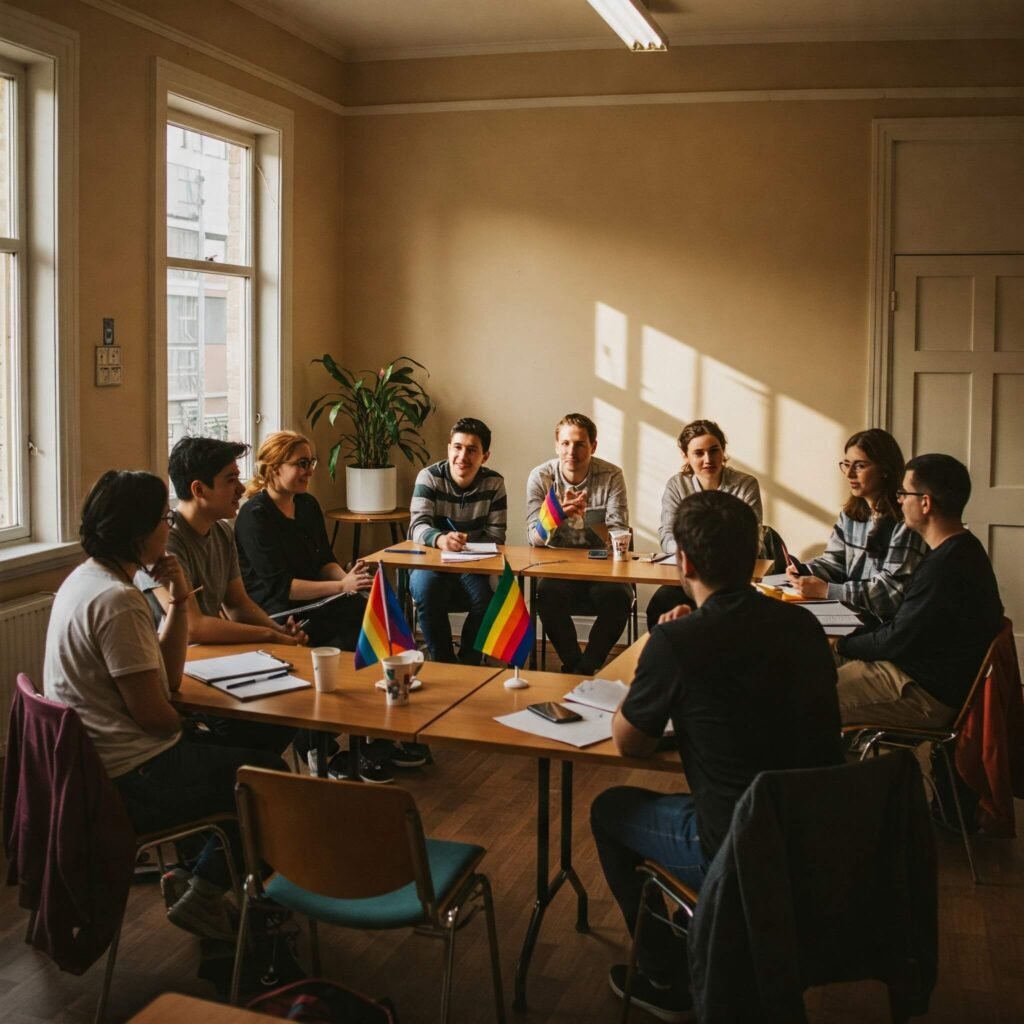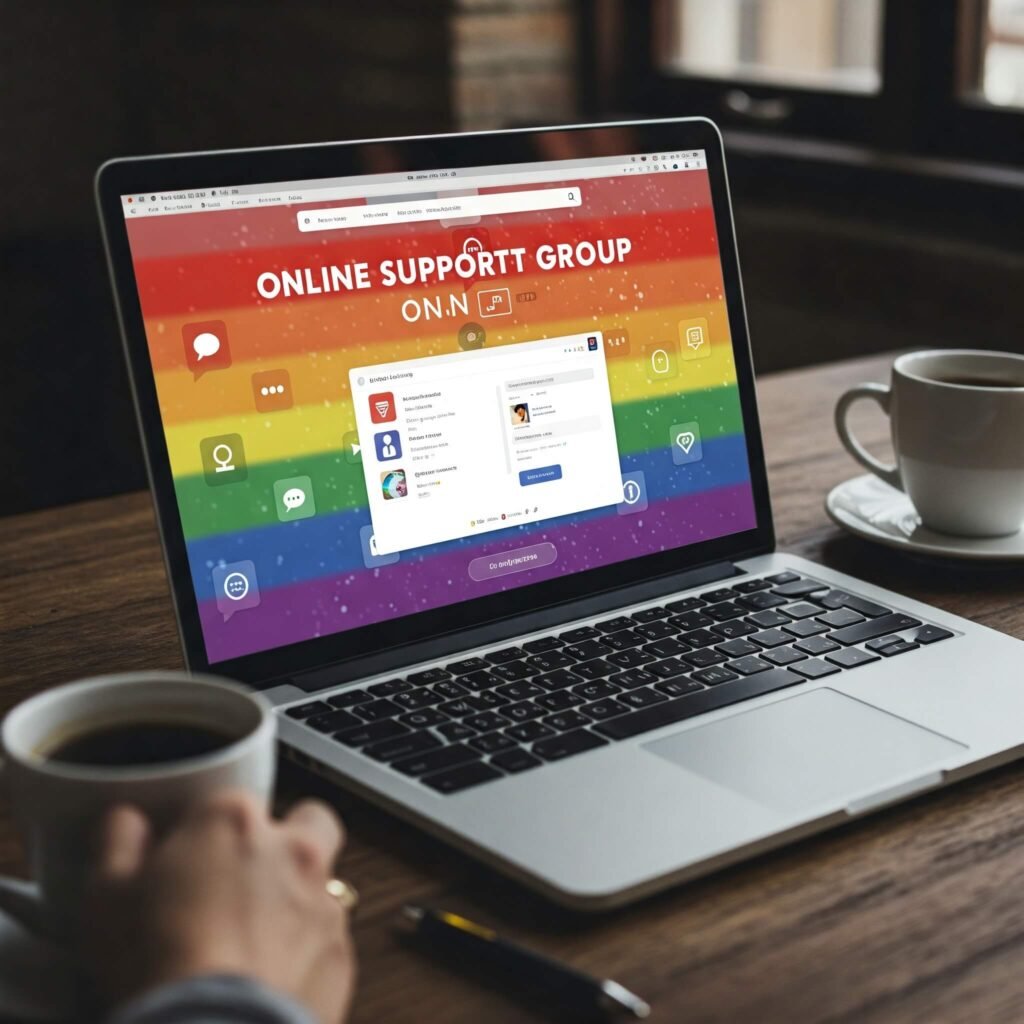LGBTQ+ support groups offer a lifeline for individuals seeking community, understanding, and empowerment. Whether you’re exploring your identity, facing challenges, or looking for connection, these groups provide a safe space to share experiences and find support. This article dives into how LGBTQ+ support groups help, their benefits, and where to find them, ensuring you have the tools to connect with a community that uplifts and inspires.
Why LGBTQ+ Support Groups Matter
LGBTQ+ support groups are vital for fostering belonging and mental well-being. Studies, like those from the Trevor Project, show that LGBTQ+ individuals with access to supportive communities report lower rates of anxiety and depression. These groups offer a judgment-free zone where people can openly discuss their identities, challenges, and triumphs.
Emotional Support and Validation
LGBTQ+ support groups provide emotional validation, helping members feel seen and heard. For example, a young transgender person might find comfort in sharing their journey with others who understand the nuances of gender dysphoria. This sense of connection reduces feelings of isolation, which, according to a 2023 study by GLAAD, affects nearly 60% of LGBTQ+ youth.
- Safe Space: A place to express feelings without fear of judgment.
- Shared Experiences: Connect with others who face similar challenges.
- Empowerment: Gain confidence through community encouragement.
- Outbound link : GLAAD
Mental Health Benefits
Joining an LGBTQ+ support group can significantly improve mental health. The American Psychological Association highlights that community support reduces stress and boosts resilience. For instance, a lesbian woman navigating family rejection might find coping strategies through group discussions, helping her build emotional strength.
Outbound link : American Psychological Association
Types of LGBTQ+ Support Groups
LGBTQ+ support groups come in various forms to meet diverse needs. Understanding the types available can help you find the right fit.
In-Person Support Groups
In-person groups offer face-to-face connection, often hosted by community centers or organizations like PFLAG. These groups are ideal for those who thrive on direct interaction. For example, a gay teen in a rural area might attend a local PFLAG meeting to connect with allies and peers.
- Pros: Personal connection, immediate support, local resources.
- Cons: May be limited in rural areas, scheduling conflicts.
- Outbound link : PFLAG

Online Support Groups
Online LGBTQ+ support groups, such as those on platforms like The Tribe or Reddit’s r/LGBT, provide accessibility for those who can’t attend in-person meetings. A non-binary individual in a conservative region might join an online group to discuss pronouns and identity safely.
- Pros: Accessible anywhere, anonymous options, 24/7 availability.
- Cons: Less personal, potential for online trolling.
Specialized Support Groups
Some groups focus on specific identities or issues, such as transgender support groups or groups for LGBTQ+ parents. For example, Trans Lifeline offers peer support tailored to transgender experiences, providing resources for navigating healthcare or legal challenges.
How LGBTQ+ Support Groups Help
LGBTQ+ support groups offer practical and emotional benefits that empower individuals to thrive.
Building Community and Belonging
Feeling part of a community is a cornerstone of LGBTQ+ support groups. A 2024 survey by Human Rights Campaign found that 75% of LGBTQ+ individuals felt more confident in their identity after joining a support group. For example, a bisexual person might find acceptance in a group after struggling with biphobia.
Access to Resources and Education
Many groups provide resources like mental health referrals, legal advice, or workshops. For instance, a queer couple might learn about marriage rights through a group hosted by Lambda Legal. These resources empower members to navigate real-world challenges.
Advocacy and Empowerment
LGBTQ+ support groups often inspire advocacy. Members might organize pride events or campaign for inclusive policies. A real-world example is the It Gets Better Project, where group members share stories to uplift youth globally.

Where to Find LGBTQ+ Support Groups
Finding the right LGBTQ+ support group is easier than ever, thanks to online and local resources.
Local Community Centers
Community centers like The Center in New York or Los Angeles LGBT Center offer support groups for various identities. Check their websites or visit in person to find schedules. For example, a queer parent might join a group for LGBTQ+ families at a local center.
Online Directories and Platforms
Websites like Meetup or GLSEN list LGBTQ+ support groups by location and focus. Social media platforms like X also have groups where users share local recommendations—search hashtags like #LGBTQSupport or #QueerCommunity.
National and International Organizations
Organizations like PFLAG, The Trevor Project, and Trans Lifeline offer directories to find groups worldwide. For instance, a gay veteran might find a specialized group through OutServe-SLDN.

Tips for Joining an LGBTQ+ Support Group
Ready to join a group? Here are actionable steps to get started:
- Research Your Needs: Identify whether you want in-person, online, or specialized support.
- Check Credibility: Ensure the group is affiliated with reputable organizations like PFLAG or The Trevor Project.
- Start Small: Attend a meeting as a guest to gauge comfort and fit.
- Engage Actively: Share your story and listen to others to build connections.
- Stay Consistent: Regular attendance deepens relationships and support.
Final Thoughts
LGBTQ+ support groups are powerful spaces for connection, healing, and growth. Whether you’re seeking emotional support, resources, or a sense of belonging, these groups can transform lives. Start by exploring local centers, online platforms, or national organizations to find the perfect group for you. Your community is out there, ready to welcome you with open arms.


























